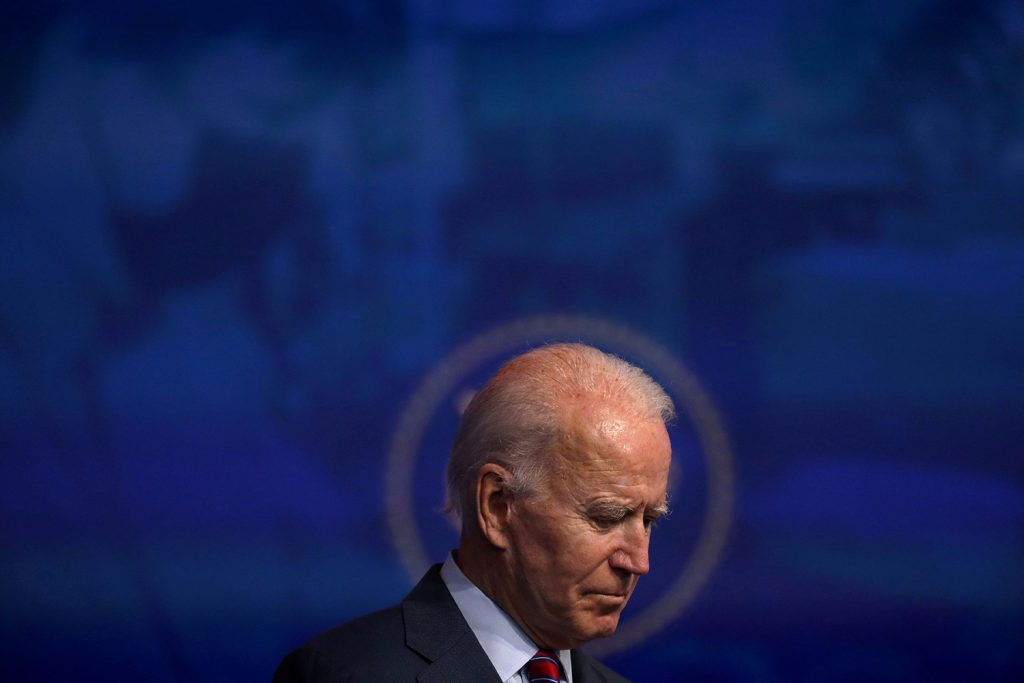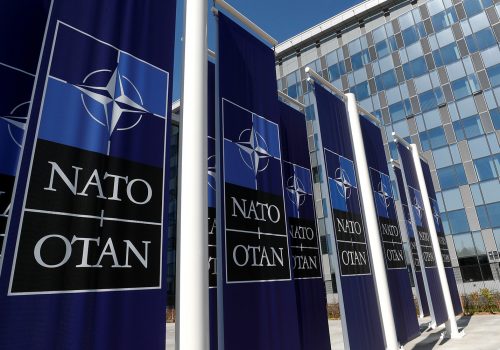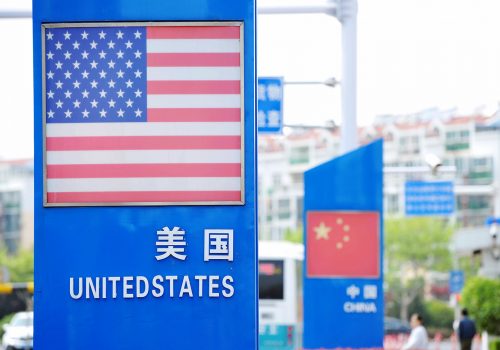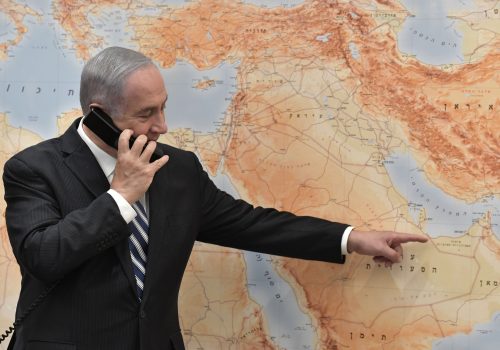Joe Biden has that rarest of opportunities that history provides: the chance to be a transformative foreign-policy president.
That opening arises due to the urgent need to tackle COVID-19 and its global economic threats. It comes because of the growing necessity to better manage China’s authoritarian rise. It also emerges due to a desire by US partners to rapidly turn the page on the Trump administration and restore common cause among leading democracies.
There was no stronger sign of that than this week’s release by the European Commission, speaking for twenty-seven countries representing almost 18 percent of global GDP, of an eleven-page “New EU-US Agenda for Global Change.”
Its purpose, with proposals that range from COVID-19 to climate and from trade to technology, is to seize what it called “a once in a generation” opportunity. The paper embraces Biden’s call for a summit of democracies in his first year in office and lays out a transatlantic agenda that should be “the linchpin of a new global alliance of like-minded partners.”
Get the Inflection Points newsletter
Subscribe to Frederick Kempe’s weekly Inflection Points column, which focuses on the global challenges facing the United States and how to best address them.
Says the paper: “As open democratic societies and market economies, the EU and the US agree on the strategic challenge presented by China’s growing international assertiveness, even if we do not always agree on the best way to address this.”
President-elect Biden’s shot at transformative leadership is also the result of the experience he and his team bring to our disruptive times. “The forces are aligned for an American leader like Joe Biden,” said Chuck Hagel, his longtime friend and former secretary of defense. “There’s a high state of confusion, uncertainty and volatility. The world is looking for a north star leader who has the capability, knowledge, steadiness and wisdom to help correct our direction. There’s hardly a leader in the world he doesn’t know or hasn’t dealt with.”
Biden may also quickly discover that foreign policy is where he can most easily become the unifying president he aspires to be. On domestic issues, it will be challenging to manage the far left of his own party and hardline Republicans. Meeting the Chinese challenge is one of the few issues that almost everyone agrees is an urgent necessity.
To achieve that, President-elect Biden and his European partners must start by reversing the erosion of the transatlantic common cause that has defined most the last 75 years. That partnership helped create the rules-based global system that advanced democracy, spread prosperity through expanded trade and investment, helped prevent great power conflict and, ultimately, brought the Cold War to a peaceful end with the collapse of the Soviet Union.
The seeds of that order, which is now at threat, were planted long before World War II had ended by President Franklin Delano Roosevelt and British Prime Minister Winston Churchill when they signed the Atlantic Charter of August 1941. By useful coincidence, the charter will celebrate its 80th anniversary during President Biden’s first summer in office.
At the time Roosevelt and Churchill met aboard the USS Augusta, with the US still four months away from entering the war, it seemed as though the Axis powers of Hitler’s Germany and Mussolini’s Italy were ascendant.
FDR and Churchill, representing the two most significant democracies of their times, didn’t draw up anything as formal as a treaty. They rather stated “certain common principles in the national policies of their respective countries on which they based their hopes for a better future for the world.”
The Atlantic Charter’s lack of legal force didn’t diminish its historic significance. It sent the world a message of American purpose, provided hope to occupied countries, and laid the foundation for a post-war order.
Vice President Harry Truman became an unlikely transformative president after FDR’s death in April 1945, bringing World War II to a successful end and then working to construct that order.
That included the Bretton Woods Agreement legislation and the United Nations Participation Act in 1945. In March 1947, he proclaimed the Truman Doctrine in a joint session of Congress, a policy whose purpose was to contain the Soviet Union and “support free peoples who are resisting attempted subjugation by armed minorities or by outside pressures.”
What would follow shortly thereafter in April 1948 would be the Marshall Plan to rebuild war-torn Western Europe and then the North Atlantic Treaty in 1949, creating NATO and bringing a US security guarantee to all its European allies.
“Ronald Reagan and George H.W. Bush may have expedited and managed the Cold War’s end, but it was Harry Truman whom history called upon to engage the Soviet Union in a struggle for world supremacy during a time when most Americans were war-weary and exhausted by their role in resolving the endless tragedies of twentieth-century Europe,” writes Joe Scarborough in his excellent new book, Saving Freedom: Truman, the Cold War and the Fight for Western Civilization.
Truman serves as the most appropriate role model for President-elect Biden. Truman created the global system, the ascendance of democratic rule and the liberal international economic order that Biden must now work to restore, reinvigorate and reinvent.
If Biden doesn’t want to throw away his shot, to paraphrase Alexander Hamilton from the eponymous musical, he’ll need to understand both what makes his task easier and harder than Truman’s.
What will be easier is that he doesn’t need to create the institutions and practices that his predecessors invented out the chaos and destruction of World War II. Instead, he needs to help manage the changes required for a new, more globally complex era.
A good first step would be a “Global Charter,” in the same spirit as the Atlantic Charter, including a small enough group of global democracies to give it legitimacy but also make the process manageable.
What also makes Biden’s task easier is he doesn’t have to pull this off at a time of war. The downside is he lacks Truman’s advantage of working with international and domestic partners who had the memory of two world wars and the desire to head off a third.
What also makes Biden’s job harder is that the United States has only roughly 24 percent of global GDP, compared to half of global GDP in 1945, so it lacks the leverage it once had. That will require a more astute and nimble partnering with others.
What’s giving this effort even greater urgency is the realization that Joe Biden is 78 years old. It is hard to imagine any successor with the philosophies, experience or conviction to play this historic role.
This article originally appeared on CNBC.com
Frederick Kempe is president and chief executive officer of the Atlantic Council. You can follow him on Twitter @FredKempe.
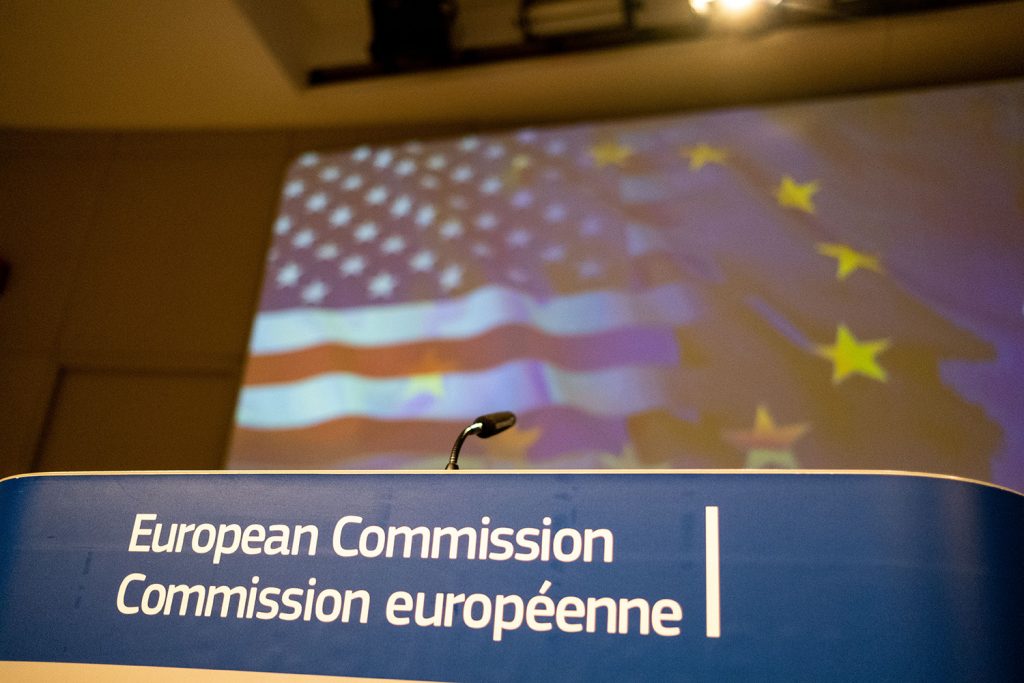
THE WEEK’S TOP READS
This week’s top reads begin with the FT’s scoop on the EU proposal of a “global alliance,” and the 11-page European Commission document that supports it. It could be the beginning of something big.
Also, don’t miss two reports on the escalating Chinese crackdown on Hong Kong democracy activists, perhaps not a surprising move but certainly a signal to Biden that Beijing has set its course.
Kurt Campbell and Rush Doshi write in Foreign Affairs how the Chinese challenge could bring the best out of the United States, if leveraged properly. Rivalry can do that.
Christine Lagarde comes to the Atlantic Council to open our new GeoEconomics Center and reflects on what her significant experience of crisis management has taught her and why climate and gender issues belong on the ECB president’s agenda.
Finally, don’t miss this week’s must-read, not just for you but also President-elect Biden and his team. The New York Times’ Tom Friedman counsels that as the Biden team considers re-entering negotiations with Iran, it should not ignore the new perils in its weapons developments and the new hope of the Abraham Accords.
#1. THE EU’S PITCH FOR A “GLOBAL ALLIANCE”
EU proposes fresh alliance with US in face of China challenge
Sam Fleming, Jim Brunsden and Michael Peel / FINANCIAL TIMES
The FT broke the story Monday morning that the EU would call on the US to seize a “once-in-a-generation” chance to forge a new global alliance by pitching a new transatlantic agenda that had as much to do with moving on from Trump’s United States to confront Xi Jinping’s China.
There are plenty of obstacles to closer EU-US cooperation, ranging from differences within the European bloc to US Big Tech’s market behavior as a potential flashpoint. Set aside your skepticism this week, however, as the paper is a breakthrough in EU thinking about Europe’s place in the world.
The European Commission paper, entitled “A new EU-US agenda for global change,” recognizes that the partnership needs “maintenance and renewal if the democratic world is to assert its interests against “authoritarian powers” and “closed economies (that) exploit the openness our own societies depend upon.” Read More →
#2. CHINA’S HONG KONG MESSAGE TO BIDEN
An Ominous Milestone in Hong Kong’s Democratic Descent
Timothy McLaughlin / THE ATLANTIC
Jimmy Lai, China’s Lie
The Editorial Board / THE WALL STREET JOURNAL
This week saw a further troubling crackdown in Hong Kong against pro-democracy activities, with the simultaneous arrest of media tycoon Jimmy Lai and the sentencing of three prominent activists happening on the same day.
Timothy McLaughlin of the Atlantic writes that with the sentencing of Joshua Wong, Agnes Chow and Ivan Lam, “hope is dwindling that Hong Kong’s prodemocracy movement can withstand Beijing’s incursions on the city.” Read More →
The editorial board of the Wall Street Journal says these events demonstrate that Xi “is testing whether a Biden Administration—especially one seeking a climate accord—will look the other way on China’s behavior in Hong Kong and elsewhere.”
“We trust Joe Biden is paying attention,” they write, arguing that China’s “lack of moral credibility is the regime’s biggest vulnerability, and refusing to accept its lies must be the starting point of any U.S. China policy.” Read More →
#3. LEVERAGING THE CHINA CHALLENGE
The China Challenge Can Help America Avert Decline
Kurt M. Campbell and Rush Doshi / FOREIGN AFFAIRS
America has had a rough period, marked by “a runaway pandemic, a struggling economy, burdening debt, a wounded democracy, and a diminished global reputation,” write Kurt Campbell and Rush Doshi in Foreign Affairs.
Yet they challenge the temptation of accepting US “declinism,” which they define as “the belief that the United States is sliding irreversibly from its preeminent status.”
Indeed, they reckon a “path away from decline … may run through a rare area susceptible to bipartisan consensus: the need for the United States to rise to the China challenge.”
“The arrival of an external competitor has often pushed the United States to become its best self; handled judiciously, it can once again,” they write. “During the Cold War, U.S. politicians endeavored to leave foreign policy differences at ‘at the water’s edge.’ In this time of partisan gridlock, domestic consensus may once again begin beyond America’s shores.” Read More →
#4. LAGARDE AS CRISIS MANAGER
ECB President outlines her plans for overcoming the second wave of economic damage from COVID
David Wemer / ATLANTIC COUNCIL
Christine Lagarde is taking the ECB out of its comfort zone
ECONOMIST
ECB President Christine Lagarde spoke with me at a virtual Atlantic Council event this week that marked the launch of our new GeoEconomics Center. She spoke of her experience as a crisis manager, handling the global financial crisis as French finance minister, the Eurozone crisis as IMF managing director and now the pandemic at the ECB.
What she has learned is the value of moving swiftly, something European leaders took from the Eurozone crisis. “If we had moved a little bit faster than we did, it would not have been as costly as it was and it would not have left as many scars,” Lagarde said. Read More →
Listen to the whole, fascinating exchange here, where she also underscores why the Economist suggests she is taking the bank out of its comfort zone with her emphasis on climate, gender and equity issues. Read More →
#5. ADVICE TO BIDEN ON IRAN: MIND THE CHANGE
Dear Joe, It’s Not About Iran’s Nukes Anymore
Thomas L. Friedman / THE NEW YORK TIMES
Thomas Friedman delivers us this week’s top read with an important take on what President-elect Biden will need to consider before renegotiating the Iran nuclear deal.
Friedman’s message is that the Middle East has changed since Biden was vice president and any attempt during his presidency to revive the JCPOA should reflect those changes. Notably, Iran has made significant strides with its precision-guided missiles and is willing to use them, making the kind of assault Tehran staged in 2019 on a Saudi oil field a real threat with which to contend.
The Abraham Accords meanwhile, laid the foundations for an Arab alliance against Iran, pitting several Gulf countries and Israel against a common enemy. The Biden administration will need to take these factors into consideration.
“If you were planning a party to celebrate the restoration of the Iran-U.S. nuclear deal soon after Biden’s inauguration, keep the champagne in the fridge. It’s complicated,” he concludes. Read More →
PERSON OF THE WEEK
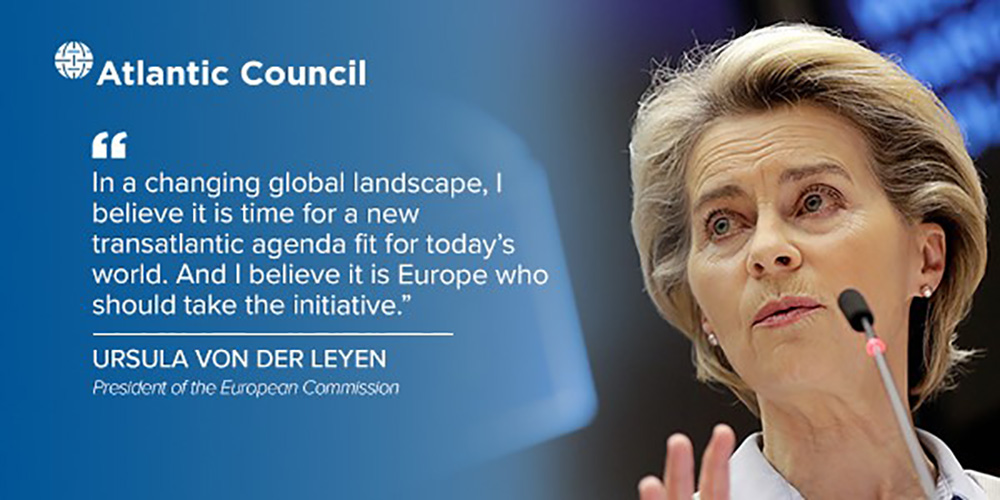
Atlantic Council top reads
Image: US President-elect Joe Biden speaks about the economy and the final U.S. jobs report of 2020 at his transition headquarters in Wilmington, Delaware, US, December 4, 2020. REUTERS/Leah Millis
